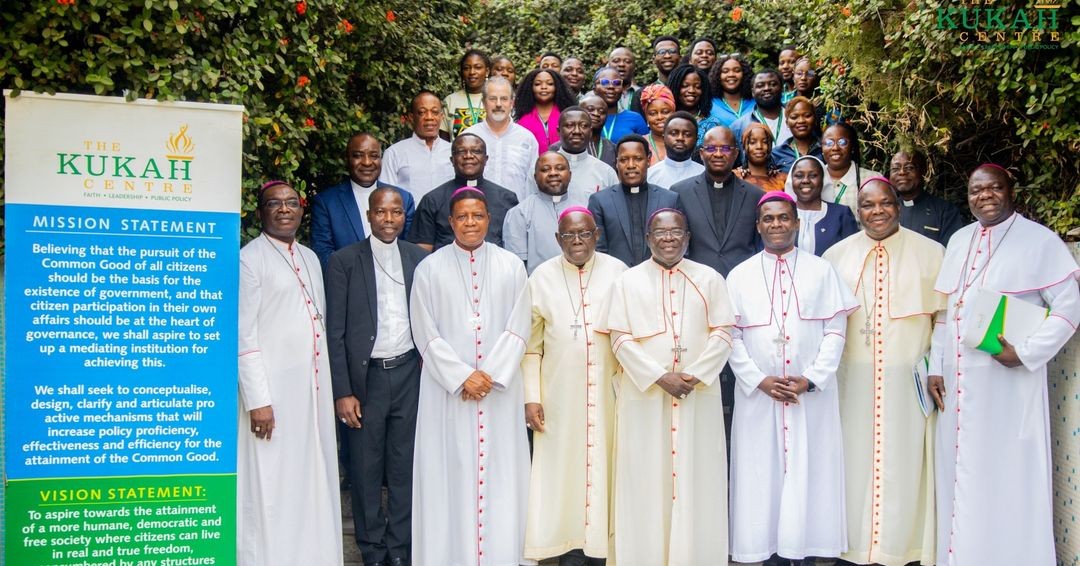
The Kukah Centre (TKC) was founded in 2012 in Abuja, the capital of Nigeria, by Mons. Matthew Hassan Kukah, Bishop of the Diocese of Sokoto to improve and encourage greater citizen engagement in the country.
The Centre is based on the conviction that the pursuit of the common good of all citizens should be the basis for the existence of government and that citizen participation should be at the heart of governance, without any exclusion that may be related to ethnic, religious, social status, economic or gender differences. To this end, TKC takes a collaborative approach with multiple stakeholders: public engagement partners, advocacy partners, faith-based partners, program partners, and funding partners. As a non-profit organisation, it has implemented humanitarian and developmental interventions focused on livelihoods, social cohesion, interfaith dialogue, electoral security and peace.
There are four key programmatic areas, based on and guided by Catholic teachings and ethics. The Good Governance programme seeks to build an informed and active electorate to ensure equal opportunity and social justice. The Leadership Development programme seeks to mentor the next generation of Nigerian leaders and build accountability in current leaders to promote good economic and social policies and instil confidence in communities. The Memory Preservation, Advocacy & Knowledge Promotion program seeks to raise awareness of critical issues of national importance, both historical and contemporary, to promote active engagement of citizens. Interfaith Dialogue actively promotes conversations among religious communities in Nigeria and between religious leaders and public policy makers.
In addition, in 2021, the Centre launched a project focused on collecting testimonies of Boko Haram victims and documenting other forms of human violations suffered by Christian minorities in northern Nigeria. Articles and stories were written to increase the awareness regarding the challenges of religious freedom in Nigeria. Discussions were held with religious leaders and politicians to explore findings and to propose solutions. All of this resulted in the Nigerian Atrocities Documentation Project.
In 2023, the Centre launched a National Policy Framework to Combat Gender-based Violence in Nigeria – a policy document accepted and endorsed by faith-based organisations such as the Christian Association of Nigeria (CAN), DIWA, and religious and community leaders. In addition, in line with its mandate to provide leadership development for youth through access to appropriate education at all levels, the Centre provides academic scholarships to 40 Christian orphans in the northern Nigeria.
Finally, the Centre made significant contributions to regional and global issues related to terrorism and organised crime in Africa and the Lake Chad Basin. In 2023, The Centre participated in a regional conference held in Mozambique with various governmental and intergovernmental actors, civil society organisations, grassroots organisations, and the private sector in Africa to discuss new developments related to the threats of violent extremism in Africa.



